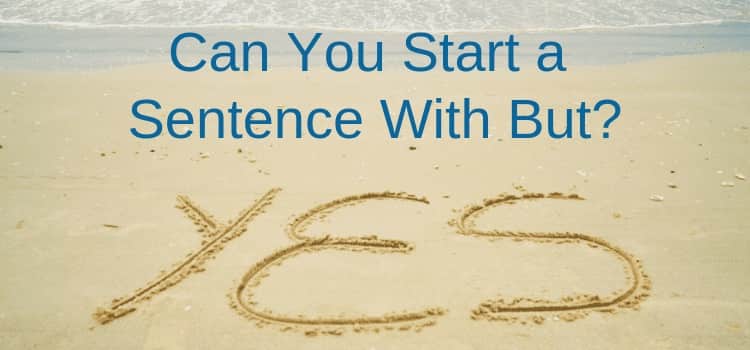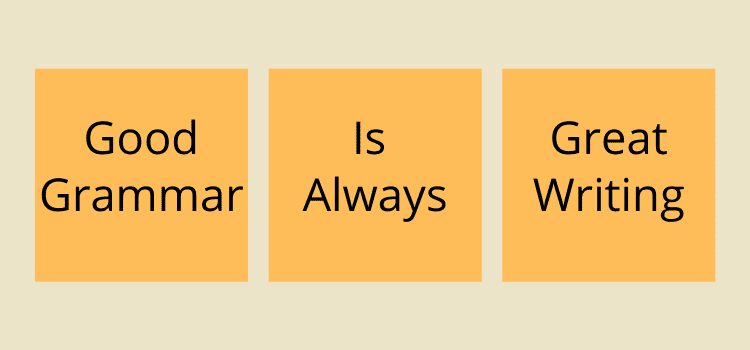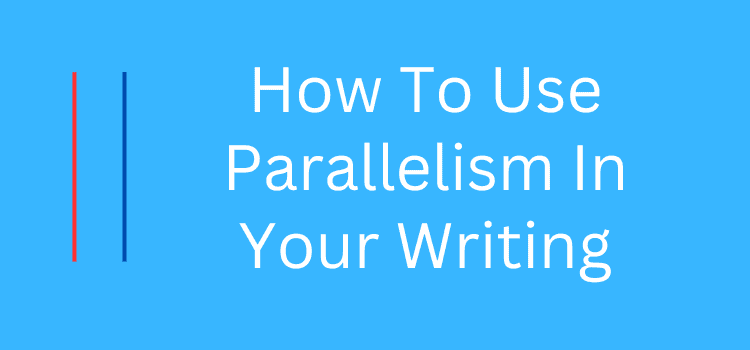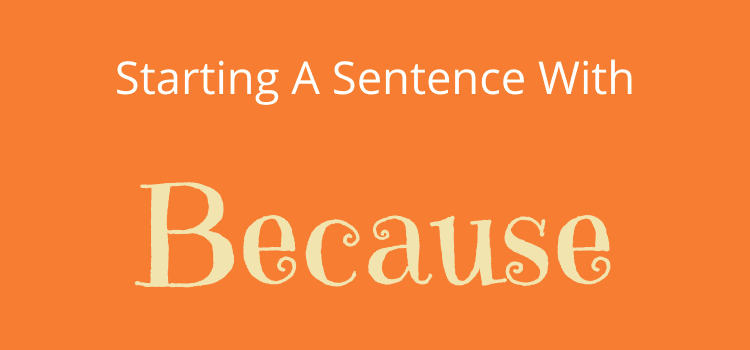
Can you start a sentence with but? I am sure you must recall your high school English teacher told you that beginning a sentence with a conjunction was wrong.
It was one of the strict grammar rules my teachers drummed into my young head.
“Never start a sentence with and or but!”
Those were the days, long ago, when ending a sentence with a preposition was taboo and the word whom was still in awkward yet fashionable use.
Yet, writing rules change
Luckily, we now live in times that are much more flexible and realistic about writing rules.
Winston Churchill put it well when alluding to obeying outdated grammar rules.
Ending a sentence with a preposition is something up with which I will not put.
Clearly, as a master in the use of the English language, it was one grammatical rule he was reluctant to put up with.
Starting a sentence with yet, and, but or so, falls into the same category.
Beginning a sentence with a coordinating conjunction
Using conjunctions at the commencement of a sentence has been around in English for over a thousand years. Well, maybe less, maybe more.
Can you start a sentence with and? You only have to read the Bible to know that it is not a new fashion in writing.
In the beginning, God created the heaven and the earth.
And the earth was without form, and void; and darkness [was] upon the face of the deep.
And the Spirit of God moved upon the face of the waters.
And God said, Let there be light: and there was light.
So, using a conjunction like and is not wrong. Nor is it a new writing form. It is as old as the hills.
The seven coordinating conjunctions
English has only seven of these linking words.
A coordinating conjunction is a word that we use to connect or join words, phrases, and clauses that are related or are logical equals.
They are:
For
And
Nor
But
Or
Yet
So
They are easy to remember because they create the acronym FANBOYS.

The functions of these seven words cover a broad spectrum.
Some indicate a reason or cause, and others imply similar or related ideas.
You can highlight a negative alternative or a contrasting notion.
Others offer an alternative or choice or something unexpected, a result, or a consequence.
The versatility of these seven short words is remarkable.
But can you start sentences with these words?
Can you start a sentence with yet? Can you start a sentence with and? Can you start a sentence with so?
Yes, of course, you can.
Understanding conjunctions
As with all aspects of English grammar, there are a couple of rules or guidelines to follow.
The most important is that there are two types – subordinating conjunctions and coordinating conjunctions.
It is easy to tell and remember the difference between the two.
A coordinating conjunction must be between two independent clauses. It is the most logical form.
For example:
I studied for weeks and weeks. But I failed my exam.
There was a crowd of people at the party. And guess who was there?
I lost my job last week, so I am really down. Yet I just know I’ll find a new job.
I can’t stand oysters. Nor can I eat crab.
I could go to London. Or I could go to Madrid.
However, a subordinating conjunction can come before the two clauses.
It generally uses a comma before the second clause, but not always.
But because I missed the bus, I was late for work, and my boss was angry.
And after I got back home, I could finally put my feet up.
But the truth is that I don’t really know.
But before the captain could answer, a major appeared from behind the guns. – William Faulkner
And even Mary could assure her family that she had no disinclination for it. – Jane Austen
Not that you can also use because as a subordinating conjunction.
Is there a comma after so?
It depends very much on the usage or style guides you might use.
For example, Fowler’s Modern English Usage would say yes. But other guides might have a different suggestion.
For me, the word so is a conjunctive adverb like, therefore.
So, I would use a comma in both instances.
So, I missed the 5:26 pm train, and then 5:55 pm, but finally made the 6:25 pm train.
Therefore, there I was, stood up and stranded for the second time.
But for the other six conjunctions, you would not normally use a comma.
Avoiding fragments
You would rarely create a sentence fragment when using a coordinating conjunction.
If the first phrase is closed with full stops (periods), and the second phrase is linked with a logical conjunction, you will never go wrong.
A fragment usually happens when you are using a subordinating conjunction.
But I got a promotion. The remedy for all my financial woes. Incorrect.
The problem is that the second clause has no verb, which is then a fragment.
But by adding a verb, the two phrases are now logical and correct.
But I got a promotion. It will be the remedy for all my financial woes. Correct.
If you are unsure about whether you have created a fragment, run your text through a reliable and accurate grammar checker.
I find that most of them are very efficient at finding and highlighting fragments.
Can you start a sentence with but in good writing?
Fiction writers have been using sentences starting with conjunctions for centuries.
And, as a matter of fact, there is no reason at all not to use them. Here are some knowledgeable quotes about starting sentences with conjunctions.
Contrary to what your high school English teacher told you, there’s no reason not to begin a sentence with but or and; in fact, these words often make a sentence more forceful and graceful. They are almost always better than beginning with however or additionally. Professor Jack Lynch, Associate Professor of English, Rutgers University, New Jersey
It’s perfectly acceptable to begin a sentence with “And,” as well as the other words that we are often taught to avoid such as “but” or “or.” Writing samples tracing back to the 9th century, including Bible translations, break these “sacred” rules, which stem from attempts to curb school children from stringing too many unrelated sentences together. Merriam-Webster
There is a persistent belief that it is improper to begin a sentence with and, but this prohibition has been cheerfully ignored by standard authors from Anglo-Saxon times onwards. RW Burchfield, New Fowler’s Modern English Usage
Business writing
However, for formal business writing, such as transactional letters, there is still a reluctance to use these words.
In addition, the use of and, but and so, in particular, are regarded as informal register.
Formal language register would use furthermore or moreover for and, however for but, and therefore for so.
These two groups of words clearly sound different in use and naturally change the formality of writing.
But it’s a stylistic choice. Nowadays, you can use coordinating conjunctions in both formal and informal writing.
For general modern writing, such as fiction, articles, or blog posts, feel free to do as you please.
But all words, phrases, and dependent clauses need to be connected logically and in a way that your reader can clearly understand.
Summary
The English language is forever evolving. So, what was accepted as the rule in the middle of the last century does not necessarily hold true today.
In 1960, an em dash was a rarity. Nowadays, it is a very common tool used in all forms of modern writing.
For clarity and understanding, starting a sentence with yet, and, but, or any one of the other seven conjunctions is perfectly acceptable today.
But be sure that you understand the difference between subordinating and coordinating conjunctions and how to use them correctly.
Or consult a grammar guide if you need help.
And last but not least, be creative. For it is up to you as a writer to decide how best to communicate with your readers.
Related Reading: I Like To Write Or I Like Writing? Which One Is Right?




Thank you very much for teaching today. I need to improve in my spoken and written English, also I want remove stage fright, please what do I need to do?